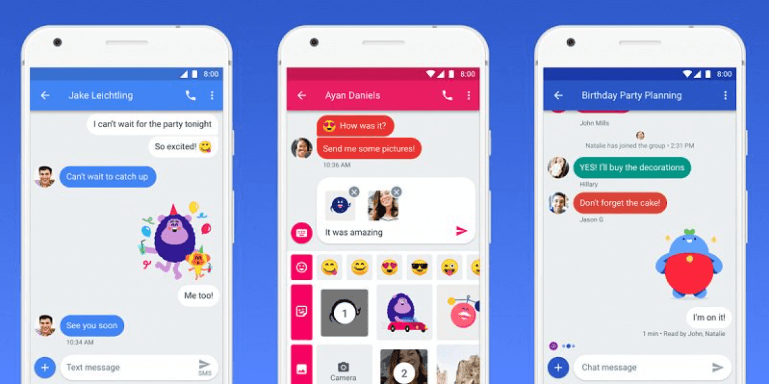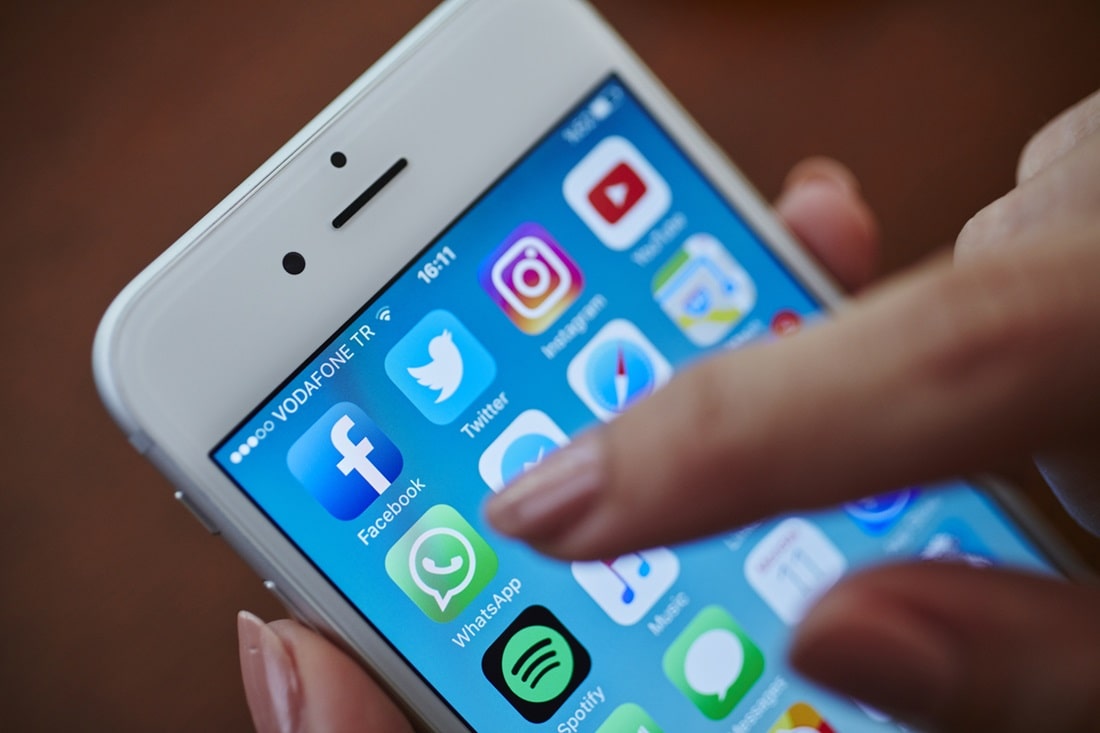What exactly is RCS? Rich Communication Services (RCS) is a standard for mobile messaging services in the mobile industry. A technology that was created to conquer the world of communications as the “SMS/MMS killer” and replace traditional text messaging. The next chapter has begun… Apple is opening up and with the iOS 18.1 update, RCS messaging between Apple and Android is now possible for the first time.
There have been discussions for almost ten years about replacing the SMS standard, which has been in use for over thirty years. Practically nothing has happened. Is this about to change? Yes, because technology giant Google has taken the lead. The search engine giant has decided to launch RCS on its own initiative in the UK and France at the end of June 2019. Another milestone followed in October 2024. With the launch of iOS 18, Apple took a major step towards improving communication between iPhone and Android users. For the first time, Apple users can send text messages to Android devices using the encrypted RCS (Rich Communication Services) protocol.
Read our blog post to find out where this technology comes from, what it can and cannot do, what the situation is like in Switzerland and where RCS might be heading.
How was RCS born?
Development of the original Rich Communication Suite began in 2008 under the leadership of Finnish telecommunications group Nokia. The GSM Association (GSMA), in its role as the global industry association for GSM mobile operators, has been driving the development since then. In 2011, the product was renamed Rich Communications Suite enhanced (RCS-e). Under the name “Joyn”, the GSMA worked to promote this standard for mobile messaging around the world. Operators became interested in the technology and invested in it. The aim was to compensate for declining revenues from the traditional SMS market.
However, the telecoms companies, handset manufacturers and technology groups failed to develop a common strategy to conquer the markets. As a result, the RCS standard languished for several years. But in the spring of 2018, Google suddenly appeared on the scene. The Alphabet giant announced that it would immediately stop developing its own messenger applications and rely exclusively on RCS.
But even this spectacular turnaround failed to provide the hoped-for boost. Operators, smartphone manufacturers and technology companies were still not pulling in the same direction. As a result, development stalled once again.
Google takes the helm
A few months later, on 17 June 2019, Google announced once again, via the technology portal and media network The Verge, that everything was going far too slowly and that it no longer wanted to wait. From now on, Google would go it alone and launch RCS for all Android users in France and the UK in the same month. The launch in both countries will take place without the support of other companies. Other countries will follow. Specific names have not yet been revealed. Samsung has also agreed to work with Google, and Microsoft is also said to be interested in a wider collaboration..
What does RCS offer?
Universal RCS technology lets you communicate with video calls, chats and up to 160 characters per message. You can also send stickers, GIFs, videos, files, emoticons and voice messages. Features such as read receipts, write indicators and group chats are also available. No need to download an extra app.
Some key data on RCS:
- No character limit of 160 characters per message
- Sending and receiving emoji’s, stickers, GIFs, videos, voice messages and files
- The send and read confirmations familiar from WhatsApp
- Video chats
- Group chats
- Interactive elements (see Visilab)
What does the user interface look like?
In general, there is no standard user interface for RCS, as the default messaging application on Android is designed differently by each carrier. The default SMS application Google Messages (formerly Android Messages) looks like this with the RCS features:

How does RCS work?
RCS is not a mobile application like WhatsApp or Facebook Messenger. Like classic SMS, it is a messaging standard. This means that RCS can theoretically be used on any phone that supports the standard, without having to install a new app. Google will offer RCS directly in its SMS/MMS client, Android Messages. This will happen regardless of whether your own operator supports the service. By integrating RCS directly into Android, developers will be able to enable the new chat service at any time. Once RCS is available, the operating system will ask if you want to use the new chat service. Tap Yes to send RCS instead of SMS, provided the recipient has an RCS-enabled phone.
The application works “free of charge” through the standard messaging function of a smartphone. It is simply called “Chat”. Unlike traditional SMS, RCS-based messages such as WhatsApp etc. are billed through your mobile subscription’s data allowance.
As the new standard is backwards compatible, messages can still be sent to users whose devices or operators do not yet support RCS. In this case, however, good old SMS will still be used as a fallback technology. In this context, the issue of roaming charges in Switzerland and outside the EU should not be forgotten. Depending on the operator, these can be horrendously expensive, especially for data usage, but also for sending SMS and MMS. After all, roaming has been abolished in Europe. Of course, additional content such as voice messages, videos, etc. cannot be transmitted.
The core of the problem – what is Apple doing?
In order for RCS to work for everyone, all telcos and equipment vendors would have to actively support the technology across the board. This is the crux of the problem. Even if Google were to take the lead and integrate the technology directly into its SMS/MMS client, making the service independent of its own operator, the overall picture would still be skewed. In his article in the NZZ am Sonntag of 13 April 2019, author Markus Städeli points out that 76 telecommunications companies worldwide already support RCS and, according to Swisscom, 59 more will follow in the next twelve months. But what about the rest? And what is Apple doing? In Switzerland, iOS still has a market share of almost 50%.
2024 -Apple opens up: RCS messages between Apple and Android possible for the first time with iOS 18.1
Dieter Bohn of The Verge speculated that even Apple could bring Messenger to its iPhones at the urging of Google and network operators. According to him, Google and various carriers are in talks with Apple. And he was right – with the introduction of iOS 18.1, Apple has taken a significant step towards improving communication between iPhone and Android users. For the first time, Apple users will be able to send short messages to Android devices using the encrypted RCS (Rich Communication Services) protocol.

Focus on corporate customers
This innovation not only revolutionises personal communication, but also opens up new opportunities for businesses: By supporting the RCS standard, companies can now ensure that their messaging platforms reach an even wider audience. This innovation is particularly beneficial in a business context, as RCS offers a host of advanced features over traditional SMS, such as read receipts, rich media and interactive buttons – all with the security of end-to-end encryption.
For businesses that rely on innovative communications solutions, this is another step towards more effective engagement with customers and partners. The future of business messaging is here – and Apple is now part of it.
Conclusion
With the support of Google and now Apple, RCS has established itself as a serious communications standard. The introduction of RCS messaging between iOS and Android users is a milestone that will revolutionise the use of SMS. For businesses, RCS offers tremendous benefits with features such as rich media, read receipts and interactivity, especially for business messaging.
This innovation not only creates a secure and versatile communication platform, but also enables companies to reach their target groups more efficiently and professionally. The future of messaging is clear: RCS combines the best features of modern chat applications with the reliability of the SMS standard – a benefit for personal and business communication alike.
A common and independent standard as “SMS 2.0” is a really good thing and absolutely to be welcomed.
Florian Frei – Senior Marketing Manager at eCall
Would you like to stay informed about topics such as RCS in the future? Click here and be the first to know when eCall makes it possible to receive and send RCS messages via Message Gateway. And if you can’t wait that long: With an eCall account, you can already send and receive SMS, fax, Threema and voice messages, WhatsApp, Facebook Messenger messages, etc. – via our web portal, via email or directly via more than 6 API interfaces.

Florian
Florian is Senior Marketing Manager and responsible for promoting the eCall brand. In this blog, he writes about news and interesting facts about business messaging.
Cover picture: RCS messages or Google Messages can also be read directly in the browser with the “Messages Web” function. A service that will be particularly familiar to WhatsApp users (image: Google Messages).



